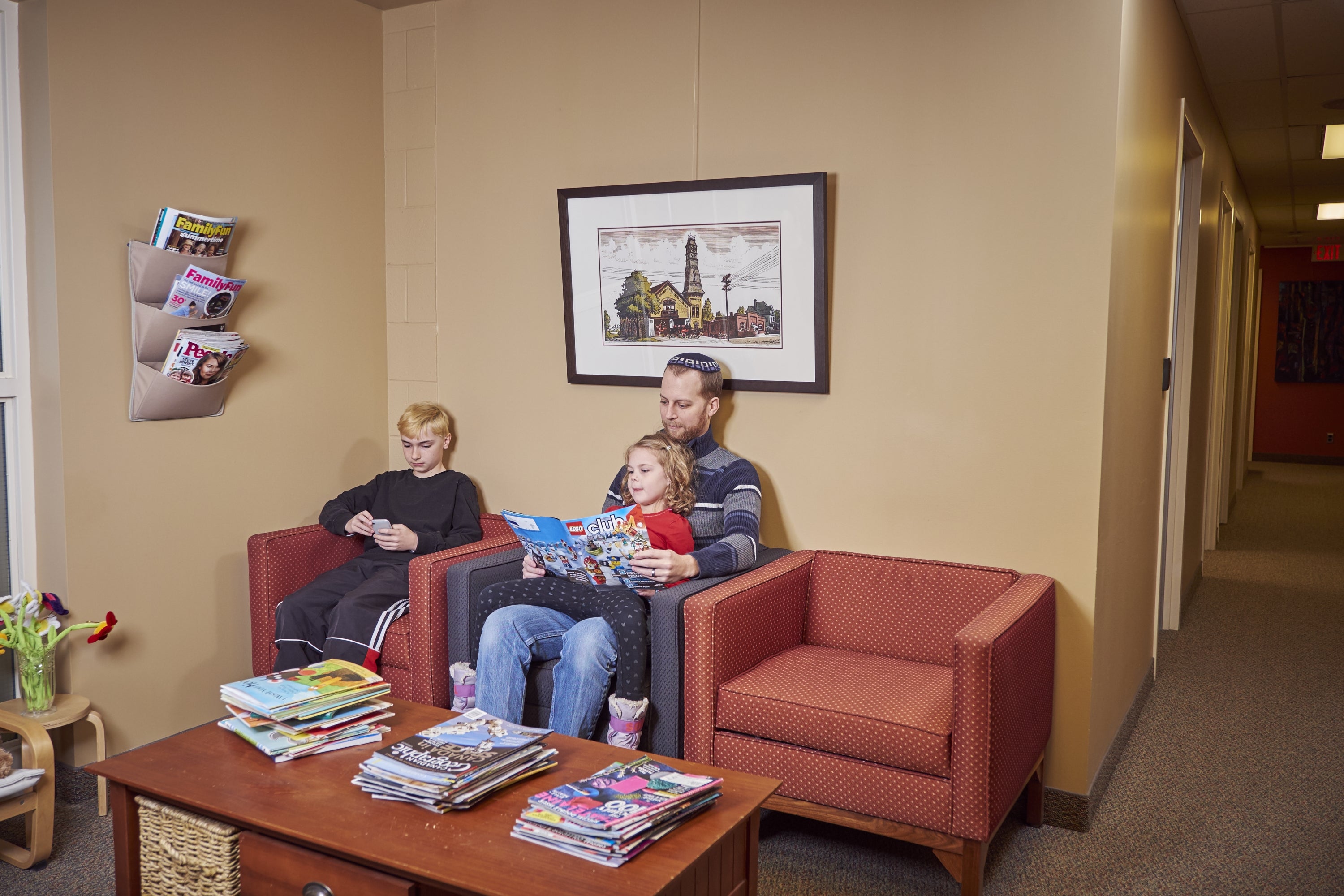
Curriculum
Ours is a six-year program with an even mixture of classroom, clinical skills training and research experience distributed over the first five years, plus a full-time predoctoral residency in a subsequent year. The Program Guidebook presents the entire curriculum, broken down by year in the program. Although the clinical program consists mainly of a predetermined sequence of courses, there are minor adjustments depending on the year in which students enter the program, faculty sabbaticals, and so on.
Research training
In addition to the cornerstone of a strong mentorship between each student and his or her research supervisor, our program is designed to provide a broader research community in which we all share and discuss our ongoing work. Specifically, all faculty and students participate in the Advanced Clinical Research Forum, which meets weekly for the presentation and discussion of ongoing research and related topics. At these meetings, each student presents his or her research (once per year), guiding us through a review of the underlying theory and relevant background literature, hypotheses, study design, data analyses, and interpretation of results. Further, all students, along with the faculty, play active roles as research consultants in the discussion of the research.
We very strongly encourage students, throughout their graduate careers, to present talks or posters at scientific conferences and to submit their studies for publication in journals. Presenting at conferences offers a wider (national and international) opportunity to have others listen to, consider, and eventually adopt one’s ideas. In addition, students meet major players in their discipline and make contacts with graduate students from other programs. Publishing in journals offers students the opportunity to contribute permanently to the body of science that is the indispensable foundation for all of clinical psychology. In addition, students’ presentations and publications have additional professional benefits, such as markedly enhancing applications for internships, doctoral fellowships and postgraduate employment.
Clinical skill training
Our curriculum has been devised to provide extensive training of clinical skills in both assessment and treatment domains. In this effort, we couple didactic (lecture and seminar) coursework with practicums extending throughout each of the first four years of the program, and we extend the practicums and other skill training experiences into the fifth year. Our training philosophy requires that assessment skills be well-developed before beginning work in treatment, thereby ensuring that students have a secure capacity to conceptualize client problems and an understanding of diverse disorders before therapeutic interventions are planned and delivered. Thus, the first two years of the program emphasize assessment skills, with treatment training started late in year two or early in year three and consolidated in the fourth and fifth years.
One of our key clinical training experiences is the students’ involvement with the Centre for Mental Health Research and Treatment (CMHRT). The CMHRT is the Clinical Division’s in-house training and research facility, which is run and staffed by the core clinical faculty. Under the supervision of core and adjunct faculty, students provide assessment and therapy services to adult and child clients, presenting with a wide range of mental health problems. Students are provided with hour-for-hour supervision using one-way mirrors or state-of-the art video equipment. While the current focus of the CMHRT is facilitation of these training experiences, there are clear opportunities to integrate the training and service components with clinical research.
We also have an off-campus, four-month fieldwork practicum that is required of all clinical students during the summer following the first year of graduate studies. Based on their particular interests, students work at one of many off-campus institutions in the area where they gain practical experience in psychological assessment, as well as some exposure to psychotherapy, and participate in various programs of the host settings. Students also have the option of taking further part-time practicums in later terms with the approval of their supervisors. Over the past few years, students have done practicums at settings such as the following: the Centre for Addiction and Mental Health (Toronto), St. Joseph's Hospital and the Centre for Mountain Health Services (Hamilton), KidsLink (St. Agatha), Lutherwood (Waterloo), the Grand River Hospital and the Grand Valley Institute for Women (Kitchener), and Lakeridge Health Oshawa – Child, Youth and Family Program (Oshawa). Some of our senior students also do practicum placements at local private practices.
Residency/Internship
Finally, our students are required to complete a full-year Predoctoral Residency/Internship usually in their sixth year of studies, after defending (or just prior to defending) their Ph.D. thesis. These internships are normally required to be at CPA-accredited sites. Students may apply for a tuition reduction during the internship. Over the past few years, our students have done internships at the following sites: St. Joseph's Healthcare (Hamilton), the Hospital for Sick Children and the Centre for Addiction and Mental Health (Toronto), the London Clinical Psychology Residency Consortium (London, Ontario), the Calgary Regional Health Association and the Alberta Children's Hospital (Calgary), the Edmonton Consortium (Edmonton), the University of Manitoba Department of Clinical Health Psychology (Winnipeg), the IWK Health Centre (Halifax), the University of Ottawa and the Royal Ottawa Mental Health Centre (Ottawa), and Duke University Medical Center (Durham, North Carolina).